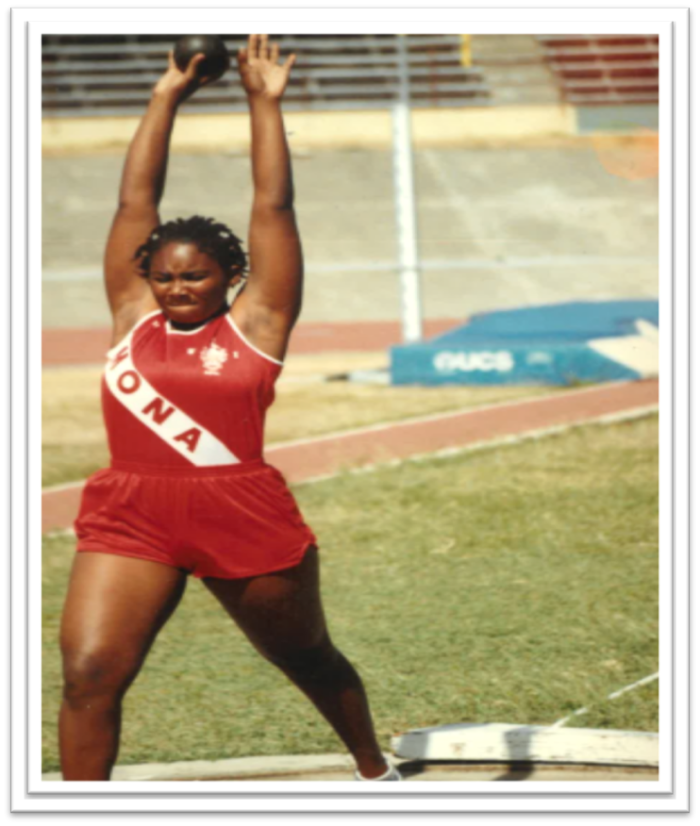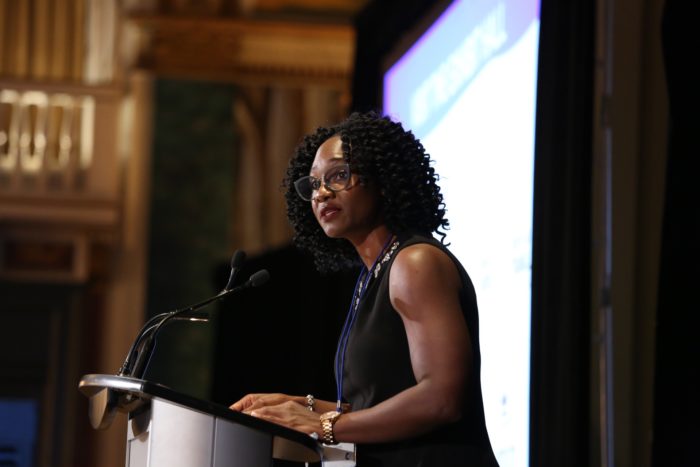Women of colour have been advocating for fairness, social justice, and equality for centuries. Our voices have just taken longer to be heard. But make no mistake: they are rising.
Tarana Burke coined the hashtag #MeToo in 2006. Her voice was acknowledged when she was named Time’s Person of the Year in 2017, along with a group of other prominent activist women called the “Silence Breakers.”
Everybody has an opportunity to be a silence breaker. I want to tell you how I became one.
A Humble Start
I was born and raised in Jamaica: the land of Bob Marley, Usain Bolt, and Grace Jones. A land where jerk chicken, patty and coco bread and curried goat are national treasures. A wonderful place where talent constantly bursts forth from the most unexpected places.
I was born to a teenage mother who never had the opportunity to achieve her aspiration of becoming a nurse. In those times, once you became a mother you were expected to fend for yourself. Before her, my grandmother had been a peasant farmer who managed to purchase several parcels of land while giving birth to and raising 10 children.
Despite my humble beginnings, I had an epiphany at the age of 11. I realized that there was a bigger world out there, and I was going to become something more. I knew my mother and grandmother had never had a chance to follow their dreams. But I was determined to find my place in that bigger world using the only tool I had: education.

I studied daily under a kerosene lamp before my home was wired with electricity. My mom would gather the three lamps in the house and put them together to create enough light for me to study in the wee hours of the morning. She made my school uniforms herself and used an iron heated on burning coals to create sharp pleats in my tunics.
I studied hard enough to be a top student in my grade every single year of high school. Finally, I was accepted into the University of the West Indies to pursue a Bachelor of Science degree.
A Challenging New Chapter
As a university student, I remember one year my roommate and I shared textbooks – using them while the other slept. Membership on the track and field team gave me an allowance of at least one meal per day during peak athletic season. And I was grateful for the discipline sports supplied.

Through self-control, rigor, and necessity, I completed 10 courses with straight As in my final year, made the dean’s list, and graduated with First Class Honours, despite the fact that I was unable to purchase a single textbook that year.
Fast Forward to Catalyst
Now, as a senior associate of corporate engagement at Catalyst Canada, I get to contribute to progressive organizations committed to creating more gender diverse and inclusive workplaces.
Today in Canada, women represent 47% of the workforce, earn 60% of university degrees, and control or influence more than 80% of all consumer spending. That sounds like a whole lot of smart women with a tremendous amount of influence. The reality is, only 3% of CEOs in corporate Canada are women.
Forget about trying to count the number of CEOs in corporate Canada who are women of colour. There are precious few. In the United States, less than 5% of CEOs of S&P500 companies are women.
The picture for women in underrepresented groups is even worse. In the U.S., women earn on average $0.81 to every $1 earned by men, according to 2017 statistics. Black women in the U.S. earn just 67.7% of what white men earn; Hispanic women earn just 62.1%. In Canada, women from underrepresented racial and ethnic groups earn 84.4% of what their male counterparts of color earn and make 70.1% of what all men earn.
Compounding this, Catalyst research shows that women of colour–as well as men of colour–pay an “emotional tax,” due to experiences of exclusion and marginalization in their everyday work and personal lives. This tax is the state of being on guard, always preparing to deal with potential bias or discrimination.
It can have a significant impact on wellbeing, productivity, and an individual’s ability to fully contribute to work by reducing their sense of psychological safety. Like many aspects of the experiences of people from underrepresented groups, the roots of these challenges are archaic, insidious, and therefore tough to tackle.
Accelerating Progress Is Possible
Achieving gender balance and ensuring women of color have an equal chance to lead requires changing the culture. And how can you help to change the culture? By listening.
This will help you to validate the experiences of underrepresented individuals. Be open, listen, and think about what you’ve heard. Believe me, your awareness and understanding will grow. And when you change, you will change the cultures around you. You can help employers understand the very real challenges that exist for your coworkers of color and create the space to address those challenges.

What About Black History Month?
Yes, it is a wonderful time to highlight the achievements of African Americans and Black Canadians, many of whom had to overcome staggering oppression, poverty, violence, imprisonment, and social, cultural, and institutional racism. However, every person of color you know has experienced many of these things in their lifetime and is probably still experiencing at least some of them today.
The emotional tax is real. I’ve felt it. The pay gap is real. At certain times in my career, the opportunities available to me and my bank account have proved it.
But the continuing story of women of color doesn’t have to be shackled to constant adversity. We can create a world where people like me have a chance to succeed without having to overcome nearly insurmountable odds every step of the way. Becoming amplifiers of diverse voices and actively listening to what people who don’t look like you or sound like you have to say are things you can do no matter what month it is. So start today. Be inclusive. Invite someone like me into your network. Let’s see how much we can both learn from one another.
Alicia Sullivan engaged leaders in Canadian and global corporations to accelerate progress for all women into leadership. She provided advice and insights on diversity and inclusion strategy, initiatives and programs. Alicia focused on building awareness and driving action to mitigate systemic barriers and supported organizational inclusion of diverse employees with the goal of tapping into the value of diverse perspectives and backgrounds. Alicia delivered presentations, keynote addresses and facilitated learning programs with corporate audiences on a range of diversity and inclusion-related topics including; the intersection of gender, race and ethnicity in the workplace, mentoring and sponsorship, bias and stereotypes, inclusive leadership and individual strategies for career advancement. Prior to joining Catalyst, Alicia worked internationally where she oversaw the National Survey of Living Conditions, a biannual survey which monitored the socioeconomic conditions of a population of 2.6 million people. She made public policy and program recommendations guided by the United Nation’s Millennium Development Goals. Additionally, she contributed to several public sector working groups and steering committees driving the public agenda. Alicia believes in active involvement in community and paying it forward. She does so through volunteering as a board member to the non-profit/charitable organizations, Backpack Project and the Canadian Caribbean Association of Halton. She mentors aspiring diverse youths through United Achievers Community Services. Alicia earned an LLB from the University of London, holds a MSc in Sociology and a BSc in Psychology and Sociology (Double Major) with First Class Honours from the University of the West Indies, Mona Campus, Jamaica.